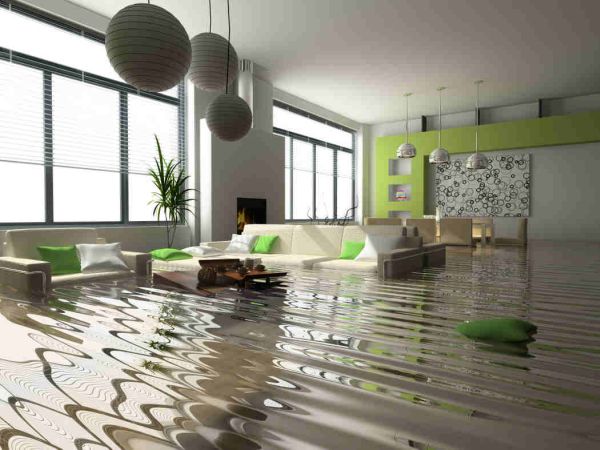Picture this – you’ve just sat down in the lounge room to watch a film. There’s a storm brewing and it’s a nice cool night, so you’re snugged up on the couch and all cozy. As Batman plays out on the screen, the rain begins to fall, and you delight in the feeling of being warm inside. All of a sudden, you hear water cascading down the side of the house as your gutters struggle to take on the volume of water. Ugh, how annoying. You knew you should have cleaned out the gutters last weekend… Well, never fear – we have compiled a list of the best ways that you can work to protect your home from water damage. As water damage is one of the most structurally difficult things to recover from, it’s important that you don’t let it happen to you! Read on to learn how you can avoid water damage.
Water damage is one of the most common things that homeowners file a claim for in insurance. There’s a misconception that water damage in your home is no big deal – but the truth is, it’s very damaging. Here is a list of some of the most common things that can cause water damage in your home:
- Your dishwasher
- Ice makers
- Water heaters
- Toilets
- Sinks
- Washing machines
- Showers and bathtubs
Whether the leak that you potentially experience is a catastrophic one, or only a small and unnoticed leak, the damage that you can incur from a leak can be devastating to your home. Here are some things that you can do to protect your home from damage.
- Check your houses and taps on a regular basis. You should check the hoses that lead to your washing machine, dishwasher and fridge on a regular basis. You should be looking for cracks or leaks. Experts also recommend replacing your hoses every 5 to 7 years.
- Check your shower regularly. Make sure that the sealant around your tub is watertight, and if you see cracks, you need to replace them.
- Clean and check your guttering regularly to ensure that the gutters and downpipes in your house are working properly.
- Know how and where to shut off your water at the mains part. If you do find that a pip suddenly bursts in your home, it can be a lot of damage saved if you manage to shut off the water before it causes too many problems. In most situations, shutting down the water in your home will stop the flow of water.
- Install a floor pan under big appliances. While these floor pans can’t stop you from getting damage from large leaks, they can be lifesaving in the event of a slow small leak. You’ll also be able to see leaks happening when they do, as you’ll see an accumulation of water in the base of the pans.
- Consider getting a leak water alarm. The water alarm is something that works in a similar way to the smoke alarm. The way they work is that when water is detected in a certain spot, an alarm is triggered that alerts you to the leak. These sensors can be placed in high risk spots like the bathroom, the laundry, the kitchen or even next to water pumps.
- Get a water flow monitor. These work in that they are attached to your water main and work to protect your whole house. These devices measure the water flows that goes into your house. If it detects flow beyond the usual flow of starting and stopping from daily use, they stop the flow of water into your house automatically.
I hope that these short tips have been helpful for you and that you can protect your home from potential water damage.
Article Submitted By Community Writer





